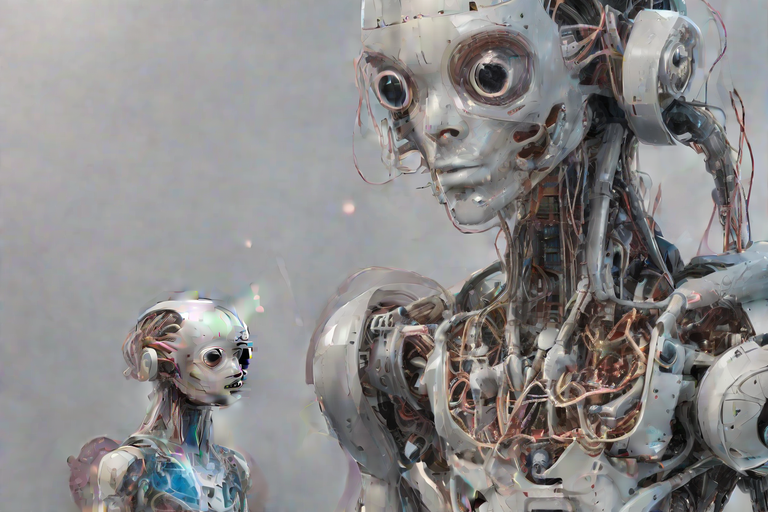We live our lives on the basis of ‘always trying to maximize the self’s gratification’; or as we could also say, we live our lives according to the dictates of the goal-orientated thinking mind. These two ‘motivational systems’ may not necessarily seem to be synonymous but it turns out that they absolutely are. For example, I may believe that it is wrong or undesirable to always be seeking a sense of satisfaction or gratification or validation for the self, and because of this belief I will try not let it have its way in this matter and this is called ‘controlling oneself’. The apparently virtuous practise of ‘self-control’ (or ‘self-governance’) is still carried out for the sake providing oneself with satisfaction however – if I deny myself do I not still get a sense of satisfaction out of this?
This is of course the problem with this business of ‘trying to lead a spiritual life’ – if we are trying to lead a more spiritual life it is probably because we find the existence and daily activities of the unredeemed self somewhat repugnant, somewhat banal. From its own point of view, the self’s activities are always perfectly justifiable and perfectly worthwhile. That’s the ‘superpower’ of the self, after all – to always find its own activities justifiable (or the very least excusable). The ego has got a big fat blind spot as regards questioning itself. When we step out of the frame a little however we can’t up seeing that this sense of being justified’ is a self-serving illusion and nothing more. The activities of the self are seen as being utterly grubby, utterly lacking in any honesty or sincerity at all. We can’t ‘stand over’ the activities of the self – we feel ashamed of them, embarrassed by them, contaminated by them. We can’t help seeing that they are utterly unworthy of us.
It is possible of course that we won’t ‘step out of the frame’, it is actually very possible indeed that we will spend long periods of time seeing things purely from the point of view of the self, in which case we won’t have any major inspiration to radically change our way of being in the world. This won’t seem like a good idea (it probably won’t seem like any sort of idea at all, come to that). Seeing the self’s way of life as being a deeply unworthy one however may cause us to try deny the self instead are trying to fulfil its every whim, no questions asked. The rational mind in this case is telling us to resist the ego rather than to an automatically facilitate it in all matters. This is coming out of a place of ‘zero perspective’ however; there is a self-contradiction here that we just can’t see. The thinking mind is telling us that the activities and inclinations of the self are crudely short-sighted and that they can only bring us closer and closer to disaster, but as soon as we try to do something about this we are again acting on behalf of the self. We are acting so as to try to benefit the self and so what has changed?
This we might imagine of course that the self can learn from its mistakes and thus become wise (or at least wiser) but this is not at all the case – the idea of ‘who we think we are’ is based on ignorance and cannot exist apart from this ignorance and so how can we possibly talk in terms of ‘the self becoming wise’? This is no such thing as ‘a wise self’ and they never could be. The same is true for the rational mind – there is no such thing as ‘a wise rational mind’ and they never could be. Thought can never be wise; it can have access to a lot of data, or knowledge, but it can never ever be wise. The thinking mind operates on the basis of entropy and – we might say – ‘entropy’ and ‘wisdom’ do not belong together in the same sentence.
We have two parallel ways of looking at this ‘problem’, therefore. One is to say that the way we generally have of relating to the world (which is the perspective that is provided by the concept of who we think we are) is actually such a narrow way of looking at things as to not be deserving of the word ‘perspective’ at all. There is no viewpoint narrower than the viewpoint of the self; there is no viewpoint narrower than this because the self inescapably sees everything in terms of itself, obviously enough. It cannot extend itself beyond itself, no matter how it may stretch or contort itself – it cannot ‘leave itself behind’, it cannot ‘leave itself out of the picture’.
What this means is that if there is any ‘error’ contained within this viewpoint then there is no way that we are ever going to be able to know about it. To know about the ‘error’ would require parallax after all and that’s the one thing we just don’t have in this situation. The self never has any parallax – that, we might say, is a defining condition of its existence. If ‘who I think I am’ could obtain a bit of parallax on itself then it would wink out of existence immediately – perspective is the one thing the self simply cannot afford to have. The other way of putting this is to say that the ongoing apparent existence of the concrete or definite identity is dependent upon our ‘personal entropy’, personal entropy meaning all of those ways of looking at the world that have been made inaccessible to us; if our personal entropy were compromised in some way, so that all the hitherto unglimpsed possibilities of seeing things were to suddenly come ‘online’, then this particular construct (the construct of the definite identity) would abruptly collapse like a balloon that has been pricked with a pin.
So when we say that we that if there is any error contained within that narrow viewpoint which is the self then there is really no way that we are ever going to know about it this is not merely some hypothetical point that we are making here, but rather something that cuts to the very core of the matter. Not to put too fine a point on it, the self itself is the error which we can never see to be an error. Far from seeing the error as an error, we see things invertedly so that everything else becomes the error, so to speak. The ‘error’ becomes the reality and reality gets written off something that we never have to think up about, something that is never going to be acknowledged. The system works perfectly well on one level – it works a treat, we might say – but there is a ‘condition’ to this setup, the condition in question being that the whole system runs on ‘fear’.
As soon as we look into it we can of course see that this is the only way that the system could work. The system has been created by saying that something which isn’t real is real and at the same time saying that this thing which isn’t real is who we are and this is achieved by the simple expedient of not paying any attention to what actually is real. We can’t make what actually is real ‘go away’ or ‘stop being real’ but we can look the other way so as to pretend it isn’t there; that’s the most we can do and it’s what we do do – that’s what we do routinely, as a matter of course. This puts us in an extraordinarily untenable position however – we are backing a fantasy against what genuinely is real and this – very obviously – is never going to work out for us in the long run! It’s a very unequal battle and there was never even the slightest chance that it would work out in our favour. This too we can ignore however – the plain and simple fact that things are never going to work out the way would we would like them to is just another aspect of reality that we can opt to ignore – and this is exactly what we do, every step of the way. We make ourselves into ‘slaves of the need to deny the truth’.
There is absolutely no freedom in this setup, clearly. To say that there is freedom in the situation would be to say that we are ‘free either to see the truth or not see the truth’ and this of course absolutely isn’t the case! The truth has become our most implacable enemy and we will do anything other than have any dealings with it, any relationship with it. What we talking about here is simply fear (or denial) therefore – ‘lack of freedom’ is the very same thing as fear (or to put this the other way around, wherever there is freedom there is no fear). When we bring our attention to this point – the point that our regular everyday existence is entirely based on fear (even though we can’t see this to be the case) – it becomes clear that living under these conditions is rather a high price to pay for the experience of being ‘positive’ or ‘defined’ self.
What possibilities are there for this highly cherished positive self, after all? Its entire reason for existence is ‘doing what it thinks will benefits it’ or ‘striving to acquire its own advantage’ (as we started out in this discussion by saying) and yet the self being the self-contradictory entity that it is this means that what is seen by it as an ‘advantage’ to start off with inevitably spells ‘disadvantage’ later on. This is a rather stupendous fact – the only reason that the positive self has for existing is seeking out its own advantage (this is the game that it is playing, the only game that it can play) and yet the nature of the cybernetic paradox means that yes equals no or win equals lose, and so in seeking whatever it is it that benefits it the self it is seeking what is against works against it, which is the very last thing that it wants to do. How much fun can we have playing this self-cancelling game, therefore? What prospects for fulfilment and satisfaction are there here?
If we look at this the other way around and say that the self’s sole motivation is avoiding pain (which is of course also true) then the inherent paradoxicality of his situation means that through fleeing pain we are actually incurring the very thing we want to get away from. Avoiding suffering always creates ‘extra suffering plus the suffering that we were avoiding in the first place and which we will have to unwillingly come back to’. We can equally well talk about this principle in relation to denial – when we are in denial then the only thing we truly care about – when it comes down to it – is acting so as to deny what is true. That’s what denial is all about, of course. Denying the truth is what counts as ‘success’ for us, doing this what gives us is what gives us the good feeling we are looking for. This is therefore – when it comes down to it – the ‘reason for our existence’ (such as it is); this is the reason behind everything we do (even though we can’t admit this to ourselves since if we do then we will no longer be in denial (obviously enough). But the ‘advantage’ that were striving for (and in which we place such high value on) isn’t really an advantage’ at all – we’re simply piling more suffering on ourselves. As if a situation weren’t terrible enough already, we are making it even more so. Successful denial is only one half of the equation after all; the other, complementary half is ‘being confronted – against our will – with what we were denying at some future point in time’. We are motivated in everything we do to seek the ‘advantage’ of being unaware of the truth’ (we are very highly motivated to do this indeed!) but our motivational system is fundamentally ‘against our own best interest’. We are our own worst enemies, as it is said…
This then is the ‘Operating System of Fear’, which is the operating system of everyday life. This is the ‘OS of Mechanical Existence’, as we might also say. We might naïvely object that this can’t possibly be the case and that we have never heard of such a preposterous and outrageous suggestion, but given that our conditioned nature is such that we aren’t in the slightest bit interested in the truth (and are in fact totally averse to it) it is hardly surprising that we never hear anything about this Operating System of Fear that we talking about here. The idea that we are secretly controlled by fear in all things when we are in our normal everyday state of ‘waking sleep’ is basic to all the mystical traditions; this is exactly what is meant by ‘the darkness of unconscious existence’ – the ‘darkness’ is being controlled by fear in everything we do. What else would ‘darkness’ mean, after all? Being controlled by fear inverts everything and causes us to act against our own best interests; it causes us to be perverse.
We are full of talk about ‘achieving this’ and ‘achieving that’ and we’re always praising ourselves in this regard but how great can our so-called ‘achievements’ be when they’re all based on running away from reality? This whole business is utterly perverse – we are complementing ourselves for our success in avoiding seeing the truth as if that were a good thing, when it is actually the source of all our suffering.






